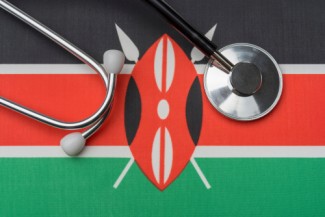A Review of the Substance Use Disorder Treatment and Prevention Systems in Kenya

Researchers predict that harm from substance use and rates of substance use disorders in sub-Saharan Africa will increase significantly in the next 30 years.
In order to have a well-functioning health system that works in harmony, the World Health Organization (WHO)describes the need for the following features:
- trained and motivated health workers,
- a well-maintained infrastructure
- a reliable supply of medicines and technologies,
- the backing of adequate funding with strong health plans and evidence-based policies.
This review shines the spotlight on Kenya with the aim to provide an overview of the current state of public sector SUD treatment and prevention systems in Kenya.
For the narrative review, the authors collected government documents as well as publications from the following: MOH, National Authority for the Campaign against Alcohol and Drug Abuse (NACADA), Parliament of Kenya, National Council for Law Reporting, Kenya National Bureau of Statistics (KNBS) and National Non-Governmental Organization (NGO) Coordination Board.
Key points from the discussion:
- The Mental Health Act 1989, the main legislative framework governing substance use disorder treatment and prevention, focuses on institutional care only.
- While there are only three public health facilities offering substance use disorder treatment in Kenya, several non-public sector actors are involved in SUD treatment and prevention activities.
- The Ministry of Health has no specific budget for substance use disorder treatment and prevention
In conclusion, the researchers offer the following five-point proposal:
- Enactment of the Mental Health (Amendment) Bill 2018.
- Integration of substance use disorder treatment and prevention into primary health care to increase access to care.
- Use of money gathered from taxation of alcohol, tobacco and betting to increase funding for substance use disorder treatment and prevention.
- Characterisation of the substance use disorder workforce to inform planning.
- Enhanced collaboration between the government and non-state actors in order to increase access to SUD treatment and prevention.